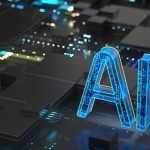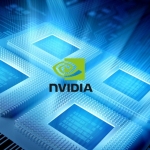The collaboration between Samsung Electronics and Naver is set to elevate the artificial intelligence arena with the development of the Mach-2 AI chip. This advanced semiconductor is projected to surpass its predecessor, the Mach-1, which is currently in joint development and application by the two companies. The partnership aims to establish an early foothold in the next-generation AI chip market, with Naver focusing on the core software design, while Samsung spearheads the chip’s design and production. The synergy is expected to bring forth significant cost savings in AI service operations through the creation of Samsung’s AI semiconductor ecosystem.
Competition in the semiconductor industry has historically been fierce, with companies continuously striving for innovation and improved performance. The development of the Mach-1 AI inference chip signified an ambitious step in this race, with both companies aiming to enhance their positions in the AI sector. Naver’s earlier reorganization of its internal structures, including an expansion from 5 to 12 specialized organizations, was a prelude to its intensified focus on integrating AI services company-wide. This strategic shift underscores the significance of AI advancements in shaping the future of technology companies.
What Performance Boosts Can We Expect?
The Mach-2 chip is anticipated to deliver considerable performance enhancements, particularly in handling large language models (LLMs). These models demand extensive computational power, which the Mach-2 aims to provide. The chip’s development is aligned with the increasing reliance on advanced AI applications that can process and understand vast amounts of data more effectively.
How Will Collaborative Efforts Impact AI Development?
Through this partnership, both Samsung and Naver stand to gain a competitive edge by combining their respective strengths in hardware and software. The collaboration exemplifies a broader industry trend where tech giants join forces to tackle the challenges of next-gen technologies, setting the stage for breakthroughs that could redefine AI’s role in various sectors.
What Does This Mean for AI Service Operations?
In terms of implications for AI service operations, the Mach-2 chip is expected to streamline processes and reduce operating costs significantly. With its superior processing abilities, AI services can become more efficient and robust, driving innovation and opening new avenues for the deployment of AI solutions across industries.
Helpful Points
- Mach-2 chip targets advanced AI applications including large language models.
- Collaboration aims for cost-effective and efficient AI service operations.
- Strategic partnership marks a significant step in AI semiconductor innovation.
In a comprehensive conclusion, it’s evident that the Mach-2 AI chip represents a strategic investment in the AI space for both Samsung and Naver, with the goal of solidifying a leadership position in the next generation of AI technologies. The focus on large language models is particularly timely, as these models become increasingly essential in a wide range of applications, from natural language processing to complex decision-making systems. As the two companies leverage their joint expertise, the Mach-2 chip is poised to become a cornerstone in the AI-powered future, with the potential to transform the efficiency and capabilities of AI services on a global scale.










